At this 100-year-old distribution company, the gray hairs are giving way to the dark hairs.
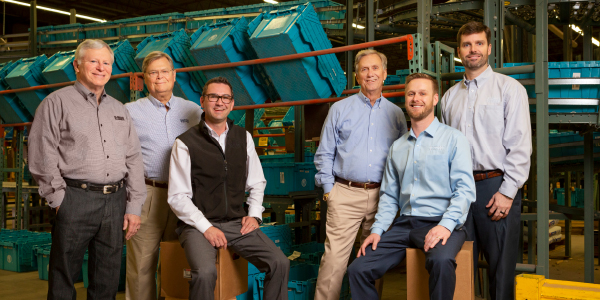
That’s how CEO Bill Schlatterer (who falls into the former camp) describes the transition taking place at Crow-Burlingame in Little Rock, Arkansas. When Crow-Burlingame marked its centennial in mid-April – during a weekend celebration and joint business conference with the Aftermarket Auto Parts Alliance – Schlatterer announced some major leadership changes, signaling a new chapter for the company.
As Crow-Burlingame looked back on 100 years, Schlatterer told employees, business partners and friends that the company was turning to the fourth generation of the family to steer it into its next century. Fletcher Lord III – great-grandson of co-founder Bob Crow – was appointed president, taking over the role from Schlatterer, who continues as CEO. Senior Purchasing Manager Ben Butler was named chief operating officer and Crow Lord – another great-grandson of Bob Crow – was named vice president of regional sales.
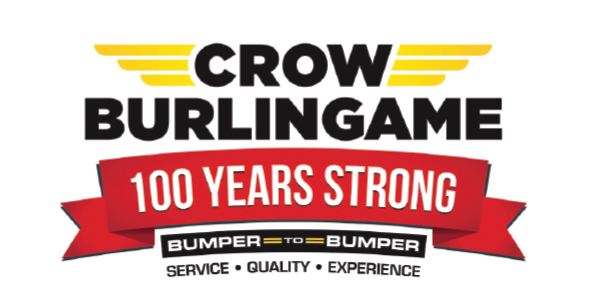
In other words, the company’s hair is getting darker.
“One of the things that probably sets us apart is this company has never really thought of itself as something that was going to end with one generation of ownership,” says Chairman of the Board Fletcher Lord Jr., grandson of Bob Crow.
Underscoring his point, Lord Jr. recalls how his father, Fletcher Lord Sr., joined the company in 1938.
“He was in the insurance business,” Lord Jr. says of his dad. “My grandfather [Bob Crow] called up his buddy in the insurance business and said, ‘Fletcher’s coming to work for Crow-Burlingame, so turn his accounts over to everybody else.’”
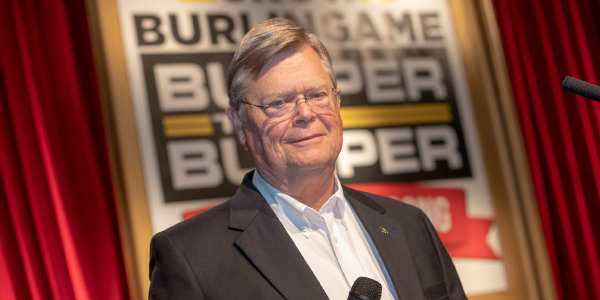
Lord Jr. took a different tack with his son, encouraging him to “see what the world is like” before settling down in the family business, Lord III recalls. After graduating from the University of Arkansas in 1999, Lord III took a job with NASCAR in North Carolina, and worked there for six years until he decided to come home to Little Rock – and Crow-Burlingame.
Lord III started as a “floater,” working the counter for a few weeks at a time whenever a store needed some help. After several years behind the counter, he became a district manager, and worked his way up to vice president in 2012.
The company’s rich history isn’t lost on Lord III, who considers it “an honor” to be where he is today, following in the footsteps of his father, grandfather and great-grandfather, along with the thousands of others over the many years. As he thinks about the future of the automotive aftermarket, he knows it’s no small task to sustain a business for 100 years – and to do it the way Crow-Burlingame has.
The company has enjoyed 100 years of profitability. In all but four years of its history, Crow-Burlingame has increased year-over-year sales. And 2018 was its biggest year yet.
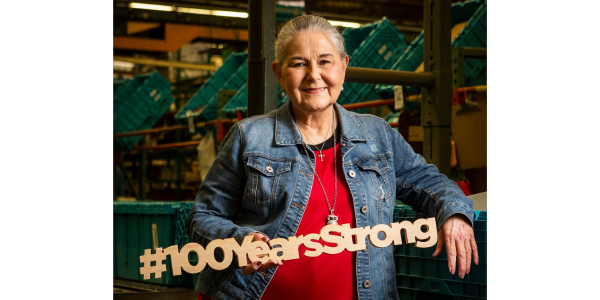
“We did not get here by chance. There have been lots of people in the past who led the way and there will be lots of people in the future to keep it going.”
-Jennifer Rainwater, controller, 30 years with the company
“I’d like to say that I want the company to be around another 100 years, but what will things be like 20 years from now?” Lord III says, as he ponders what trends, such as ride-sharing and e-commerce, will potentially impact the aftermarket. “Things have changed really quickly in the last 10 years – even the last five.”
When Bob Crow and Judge Burlingame founded Crow-Burlingame Co. on April 21, 1919, things were changing quickly too. In 1908, Ford had introduced the Model T, and William Durant had founded General Motors. In 1913, Ford had introduced the moving assembly line, sparking a manufacturing revolution that made cars – hitherto a luxury item – accessible to the average working family.
Crow and Burlingame started by selling bumpers, seats and other “accessories” to car dealers (back then, cars were delivered in boxes, without steering wheels and other features that are considered standard today). When the automakers began installing those items themselves, Crow and Burlingame shifted to selling repair and maintenance parts – which they knew would be in high demand as the auto industry unleashed millions of new cars on a nation of largely unpaved roads.
From its humble but ambitious beginnings, Crow-Burlingame has become one of the largest independently owned parts distributors and one of the largest Bumper to Bumper affiliates in the nation, with 1,250 employees. Crow-Burlingame operates 177 company-owned stores and three warehouses across Arkansas, Louisiana, Missouri, Oklahoma, Texas, Mississippi and Alabama, serving 160 independently owned Bumper to Bumper jobber stores.
The company got to this point by always trying to do things the right way, whether big or small. As Schlatterer and other team members sifted through decades of memorabilia in the runup to Crow-Burlingame’s 100th-aniversary festivities, they unearthed meticulous, handwritten invoices from the earliest days of the company. As they discovered line-by-line sales analyses dating back to the early 1920s, they were astonished by the company’s patient, fastidious accounting practices. From the very beginning, nothing was left to chance.
Over the years, people have asked Lord Jr. how the company could afford to painstakingly calculate its profit margins for every item on every invoice. His response: “How can you afford not to?”
Lord Jr., who served as president from 1974 to 2012, sees the company’s fiscal discipline as another sustaining characteristic.
“A significantly high percentage of the income the company has earned through the years has been plowed back into the company rather than taken out in the form of large bonuses or big salaries,” he explains. “It’s never been a business that was designed for the well-being of one or two while everybody else was a worker bee.”
That’s been a key differentiator for Crow-Burlingame over the years, says Tom Singleton, vice president of company store operations.
“It’s a different outlook,” says Singleton. “That allows us to find good people and retain good people.”
Crow-Burlingame has excelled at the big things too. Acquisitions and mergers – which have played a central role in the company’s growth since the 1970s – have been smart, strategic and deliberate. Many of them took years to unfold and Lord Jr. says there’s a story behind each and every one of them.
“We’ve never bought anybody because we walked in the door and said, ‘How much do you want for this place?’” he says. “We always had a relationship with them, and over time, something facilitated moving toward the thought of either a merger or an acquisition.”
Over the years, Schlatterer has found “there’s no magic” in the company’s formula for success – just “a lot of hard work.”
“I don’t know that we’ve ever hit a homerun anywhere,” says Schlatterer, CEO since 2012. “We just keep our head down, run the bases and aim for singles and doubles. We try to keep doing what we do pretty well, and we try not to be everything to everybody.”
Lord Jr. sees it much the same way.
“Our expectation is not to get perfect,” Lord Jr. says, “but to get better in a lot of ways every year.”
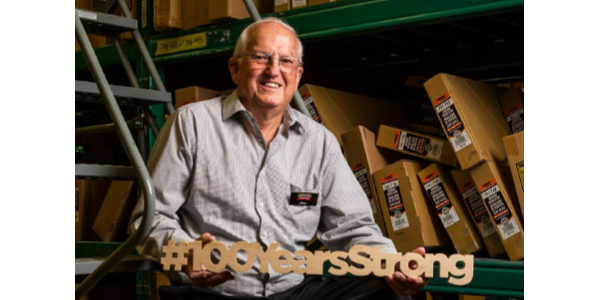
customers like I would want to be treated and I have always been empowered to do my job. It just goes to show the concern the family has for their employees and their welfare.”
– Allen Rowe, PWI Receivables, 55 years with the company
It’s All About the People
In the nation’s heartland, strong relationships are the foundation of a healthy business. For Steve DeLancey, store manager at the Bumper to Bumper/Crow-Burlingame store in Springdale, Arkansas, it’s been “all about relationships” since he started with the company in 1984 as a counterman.
Early in DeLancey’s career, a general manager encouraged him to have lunch with a customer every day. DeLancey took the advice to heart. From years of experience, DeLancey says: “You’d be surprised by how many orders you can take on the back of a napkin.”
“Most days, I still go to lunch with a customer-slash-friend,” he says. “We talk about business, and a lot of times when I leave out of there, I might have a napkin stuck in my pocket with an order for parts or even an order for a piece of equipment. ”
A big part of DeLancey’s loyalty to the company stems from his relationship with Fletcher Lord Jr. and Fletcher’s brother, Bobby Lord. Through DeLancey’s brother, who worked at a Crow-Burlingame store in DeWitt, DeLancey got to know the Lord brothers before he joined the company, and they bonded over their mutual love of duck hunting.
“It’s more like a family operation,” DeLancey says of Crow-Burlingame. “They actually care about the people working for them.”
That’s by design, Schlatterer emphasizes.
“One of our keys around here is it’s all about the people,” he says. “If there’s a mantra that probably would be on [Fletcher Lord Jr.’s] tombstone, it would say, ‘It was all about the people when I got here, and it’s all about the people when I leave.’”
While Crow-Burlingame is proud of its heritage as a family business, Bobby Lord, a director of the board, emphasizes the word “family” has a broader definition in this context.
“When we’re talking about it being a family business, we’re talking about all of our employees as a family – not just the Lord family,” says Lord, who started at the company in 1966. “We try to treat everybody like family.”
Kenny Payne, vice president of marketing, remembers coming to Crow-Burlingame in 1976 as “an outside guy who didn’t have any family ties or anything like that.” A baseball player in high school, Payne was 18 and still mulling whether to go to college or try to work his way into the minor league system. On a referral from a friend who was a counterman at Crow-Burlingame, he interviewed and got a job, thinking “it wasn’t going to amount to anything other than a job.”
Early in his career, Payne was struck by the company’s people-first mindset, and he saw that it naturally extended to customers.
“The approach always has been if [customers are] successful, we’re going to be successful,” he says.
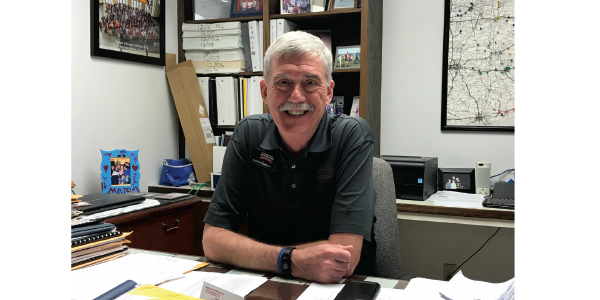
That’s the modus operandi for Payne’s group, which provides marketing support, inventory financing and even turnkey startup services for independent jobbers.
“Where Kenny’s group excels is we basically provide the same level of support to an independent as we do to our company stores,” Schlatterer says. “And that’s a commitment from the top down. It’s not something we just kind of say, but we actually do that and make it happen. And I think that’s one of the reasons our independent base is as strong as it is.”
That kind of support can’t happen without good people, because, as Singleton puts it, “good people build good relationships. It starts and ends with the people.”
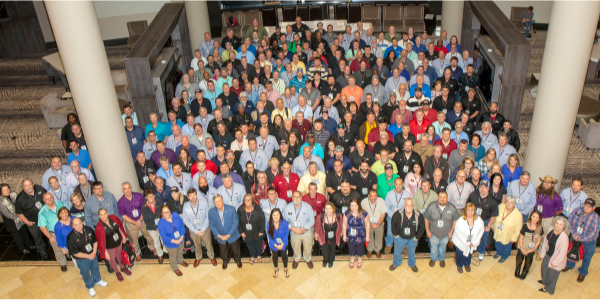
“We work really hard at having good people. But you also can pick good relationship people, people who care, people who have a service mentality,” Singleton explains. “And it’s about having good people who are knowledgeable about what they’re doing. They understand the business, and they understand the customers.”













